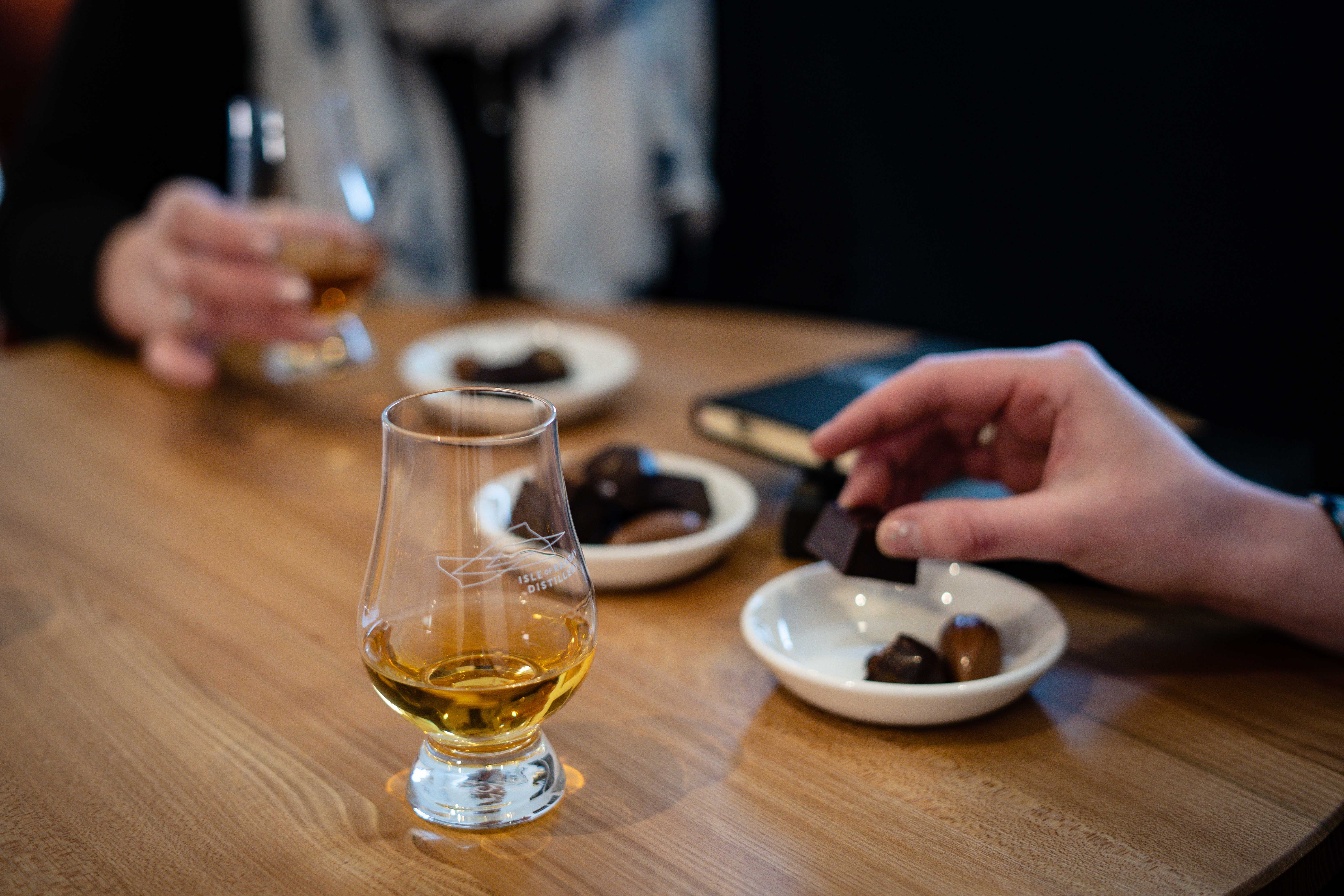Discover Single Malt Scotch Whisky
WHAT IS SINGLE MALT SCOTCH WHISKY?
There are more than 150 Scotch Whisky distilleries in Scotland, each producing a unique spirit, varying in flavour profile and character. Single Malt Scotch Whisky distilleries make up the majority of these distilleries, always using a time-honoured method, mashing, fermenting and distilling right there on site.
All Scotch Whisky is made from just three natural ingredients - cereals, water, and yeast. It must be distilled and matured in Scotland for at least three years and bottled at a minimum alcoholic strength of 40% ABV. A Single Malt Scotch Whisky is a Scotch Whisky distilled at a single distillery from water and malted barley without the addition of any other cereals, and by batch distillation in copper pot stills. Single Malt Scotch Whisky must be bottled in Scotland.

HERITAGE
Single Malt is integral to Scotch Whisky’s long and storied history, a history which has seen Scotland’s national drink become the world’s favourite whisky, beloved in 180 global markets. From the oldest distillery to the newest, the connection to place is part of Scotch Whisky’s DNA.
The Glenturret Distillery: Single Malt in the Highlands
One of Scotland's oldest working distilleries, The Glenturret Distillery is tucked away in a glen in the heart of the Highlands. Producing Single Malt Scotch Whisky on this historic site has been a part of their story for centuries, and as Ian Renwick, The Glenturret Distillery Manager, explains, the full traceability and hands-on experience of producing on the one site is what has made Single Malt Scotch Whisky the premium product it is today.
PROVENANCE

Distilling their spirit on site means Scotch Whisky producers can control the elements that determine the overall character of the final product. Trying a number of different Single Malt Scotch Whiskies side by side will show you just how much they can vary in “personality”, each one different and unique to the place they were made. Controlling the whole process, from mashing to distilling, on site is an important part of that quality control.
Use our tasting toolkit to guide yourself on a tour of your favourite single malt whiskies, side by side.
Kingsbarns Distillery: Single Malt in the home of golf
Located near to St Andrews and some of the most famous golf courses in the world, the independent Kingsbarns Distillery has been producing a Lowland Single Malt Scotch Whisky for a number of years, sourcing local barley and water from the distillery's own aquifer. Peter Holroyd, Distillery Manger, explains how the provenance of their Single Malt Scotch Whisky reflects the care and thought put into every bottle.
QUALITY
The time-honoured way that Single Malt Scotch Whisky is made is crucial to maintaining the specific flavours, body and aroma that makes each distillery – and its spirit – so special.
Rosebank Distillery: An icon brought back to the community
This Lowland distillery is an icon within the town and community of Falkirk. Gordon Dundas, Brand Development & Advocacy Director, explains why provenance and regionality so important to the nature of Single Malt Scotch Whisky.
Discover more distilleries producing Single Malt Scotch Whisky using our latest distillery map
DEFINING WHISKY, SINGLE MALT AND SCOTCH WHISKY
Historically, whisky producers in the 19th and 20th centuries built up the reputation and global sales of Scotch Whisky, laying the foundations for its success and solidifying consumers' expectations and understanding of what ‘whisky’ was, and is. When people around the world choose whisky, they expect the consistency and quality that has been established over many decades.
The SWA Legal Affairs team works establish a legal definition and protection of whisky and Scotch Whisky in different markets, based on the definition held within the Scotch Whisky Regulations (2009) and Product Specification for Scotch Whisky.
The Scotch Whisky Association Legal Affairs team explains the importance and value of protecting Scotch Whisky around the world
There is a shared understanding among established producers across the world, including in Ireland and Japan, that Single Malt whisky means a spirit created at a single distillery from malted barley and distilled in copper pot stills.
Whilst many countries do not have specific category definitions, where opportunities arise, the SWA will seek a definition which is consistent with the reputation of what Single Malt whisky is.
For example, China’s new national standard for whisky includes a new definition of “Single Malt Whisky” which states that it should be mashed, fermented and distilled in copper pot stills from malted barley at the same location.
